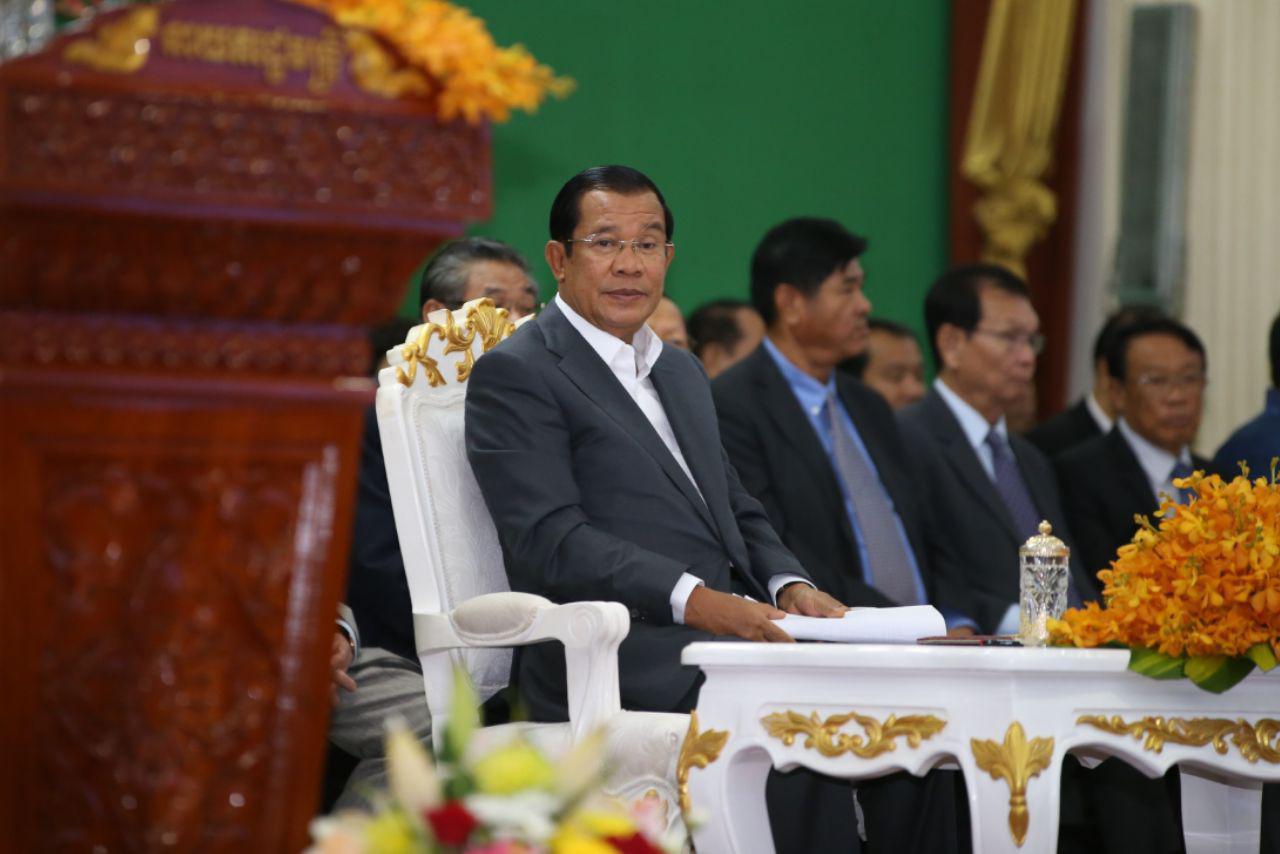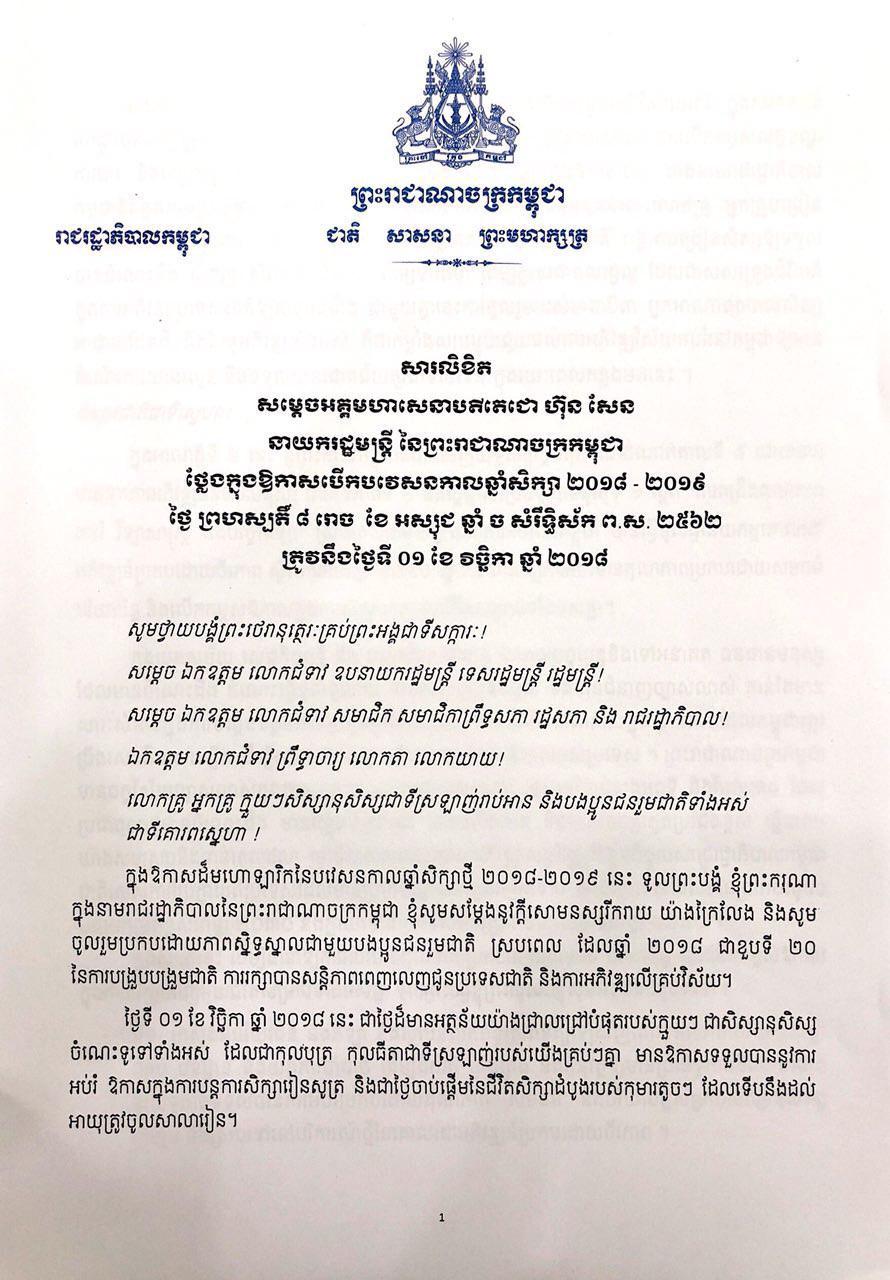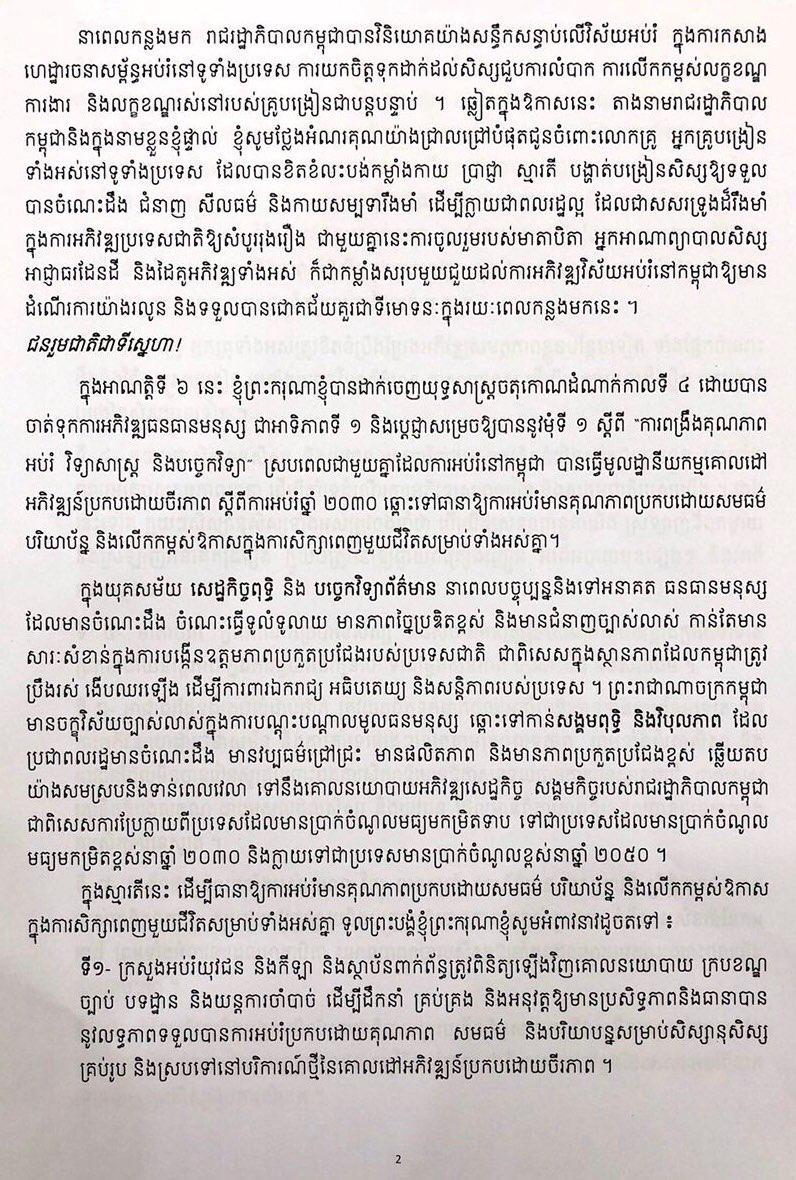Phnom Penh (FN), Nov. 2 - “Together We Further Promote Education in the New Academic Year 2019-2019" is the message of Cambodian Prime Minister Hun Sen sent out on 1 November 2018 at the opening of the new academic year 2018-2019.
The Royal Government of Cambodia has invested abundantly in education sector to build educational infrastructure across the country, assist the disadvantaged students, and improve working and living conditions for teachers. In the present and future modern economic and information technology regime, human capital, innovation, and professional skills are increasingly important to sharpen competitiveness in building the nation, particularly in the situation that Cambodia is struggling to stand up to defend the country's independence, sovereignty, and peace, Prime Minister stated.
The premier further said that the Kingdom of Cambodia has a clear vision to train human capital towards a society of thoughtfulness and prosperity where people are knowledgeable and civilized, highly productive and competitive to be able to respond appropriately and timely to the principles of socio-economic development of the Royal Government of Cambodia to become a higher middle income country in 2030 and high income in 2050.
In order to ensure equitable quality education, good learning atmosphere and promotion of life-long learning opportunities for all, Prime Minister would like to call on the following:
1) The Ministry of Education, Youth and Sports, and relevant institutions must review policies, norms and mechanisms necessary to ensure every student has access to quality education in accordance to sustainable development goals.
2) All educational institutions, including pagodas, must ensure the availability of quality education by increasing the promotion and campaign on schooling, organizing and repairing classrooms, furniture, chairs, toilets, sinks, and other equipment to ensure that schools are environmentally friendly, clean, sanitary, and comfortable. Schools are expected to finish the determined curriculum despite the events of floods. For schools implementing other curriculums, efforts need to be made to increase efficiency in implementation, as well as providing unfortunate students scholarships or breakfast and lunch.
3) Teachers must make every effort to develop their own capacities in both knowledge and teaching methods, including foreign language, information technology, to bring new knowledge to teach.
4) All students and young people must strive hard to learn and participate in all activities to support the development of our schools and society. Moreover, every student must remember to love oneself, one’s parents and one’s prosperous future, stay away from drugs, immorality, and intoxicated activities.
5) Parents, guardians, and the community must contribute to educate children on health, education and morality on a sustainable manner.
6) All levels of local authorities should pay more attention to supporting the development of infrastructures and support the drop-outs to be re-educated; especially assist students and young people who have difficulty in access to education.
7) All media, including radio, television, newspapers, magazines, newsletters, state-owned and private newspapers, shall disseminate and broaden the importance of education, and call upon parents and guardians to bring their children to school.
8) NGOs and development partners, need to strengthen collaboration and partnerships in supporting educational programs, especially in areas that are hard to reach and for disadvantaged groups.
=FRESH NEWS









